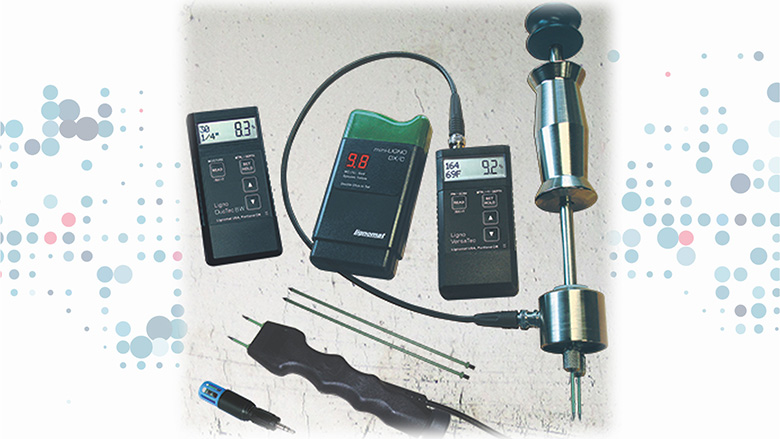When working with wood, maintaining the correct moisture level is crucial. Improper moisture can lead to issues like warping, cracking, and weak joints, compromising the quality and durability of your project. A good moisture meter for lumber helps avoid these problems by accurately measuring the moisture content in your wood.
This article shares details on choosing the right tool for the job.
Types of Moisture Meters
Choosing the right type of moisture meter depends on your project needs.
-
Pin-Type Meters
Pin-type meters use two pins to penetrate the wood and measure moisture content based on electrical resistance. This type is ideal for precise, in-depth readings, making it useful for thick or dense lumber. The drawback is that it leaves small holes, which might not be suitable for finished projects.
-
Pinless Meters
Pinless meters use electromagnetic waves to measure moisture without penetrating the wood. This non-invasive method is quicker and covers a larger area. It is ideal for surface readings and does not leave any marks on the wood. They may not be accurate on uneven or rough surfaces.
Key Features to Consider
Selecting the right meter requires paying attention to specific features that match your needs.
-
Species Calibration
Different wood species have different densities and chemical compositions, which can affect moisture readings. Ensure your moisture meter for lumber has a species calibration feature, allowing you to adjust the meter settings based on the type of wood you are using, ensuring accurate measurements.
-
Depth Measurement
Depending on your project, you might need to measure moisture at various depths. Pin-type meters can measure moisture at different depths depending on the length of the pins used. Some pinless meters also offer dual-depth settings, which can be useful for checking surface and internal moisture levels.
-
Calibration and Accuracy
Accurate readings are essential to avoid costly mistakes. Look for meters that can be calibrated on-site to ensure precision, even after heavy use. Regular calibration ensures that your tool remains reliable over time.
Build Quality and Durability
Your moisture meter should withstand the demanding conditions of woodworking.
-
Consider Rugged Construction
Select a moisture meter with a sturdy build, resistant to dust, moisture, and physical impacts. This durability is particularly important if you are working in rough environments like construction sites or sawmills.
-
Pick One Which Offers Long-Lasting Pins
For pin-type meters, consider the durability of the pins. They should be strong enough to withstand multiple uses without bending or breaking.
Budget Considerations
While you want to avoid cheap, unreliable options, you do not necessarily need to buy the most expensive model either.
Value for Money
High-quality moisture meters usually range from $100 to $500. Consider what features you need for your projects. A good warranty and strong customer support are also valuable, especially if you are investing in a pricier model.
Conclusion
Choosing the most suitable moisture meter for lumber can significantly impact the quality and longevity of your woodworking projects. Whether you opt for a pin-type or pinless model, ensure it meets your specific needs regarding species calibration, depth measurement, and durability. Investing in a good-quality meter will save you from future headaches and help you create reliable, high-quality woodwork.
By understanding these critical aspects, you can make an informed decision that best suits your woodworking requirements. Accurate moisture readings will ensure your lumber is ready for use, minimizing the risk of structural issues and helping you achieve professional results every time.


